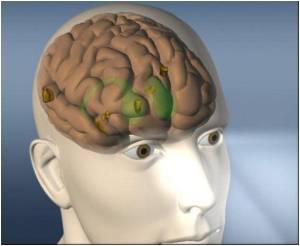Research has revealed that haloperidol, an anti-psychotic drug has, within two hours of intake, the temporary effect of reducing a part in the brain which has an impact on movement and coordination.

In the experiment healthy volunteers experienced impaired motor abilities that coincided with diminished grey-matter volume in the striatum1 - a brain region that mediates movement.
Andreas Meyer-Lindenberg, professor of psychiatry and psychotherapy at the University of Heidelberg in Mannheim, Germany, and lead author of the study, said: "This is the fastest change in brain volume ever seen. Studies have found that the volume of brain regions changes over a number of days, but this is in one to two hours, and in half that time it bounces back."
Haloperidol, like most antipsychotics, blocks the D2 receptor, which is sensitive to dopamine. The drug stifles the elevated dopamine activity that is thought to underlie psychosis. D2 receptors are abundant in the striatum, where their activity regulates gene expression. But, until now, no one knew that blocking the receptors would rapidly alter the brain's physical structure.
"We've seen changes in the brain before, but to see significant remodelling of the striatum within a couple of hours is staggering," said Clare Parish at the Howard Florey Institute for brain research in Melbourne, Australia.
She added: "Our viewpoint was that only chemical changes would happen in such a short time."
Advertisement
Source-ANI















